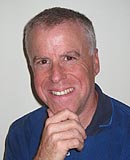


|
July 26, 2004
Front
Page
|
|
Analysis
Monday, July 26, 2004 -As the nation’s press descends on Boston for the Democratic Convention, the Democrats face an old problem: Who is and who isn’t a journalist? Officially, the Democrats decide on press credentials: which scribes, bloggers, on-air correspondents and off-air producers and camera crews should have access to the action. Implicit is deciding what constitutes journalism and who is and isn’t practicing it. The First Amendment might seem to promise something akin to absolute freedom for the press, but the reality isn’t so simple. And it’s getting more complicated. When President George W. Bush’s father was president just 12 years ago, you had to be hired by a company that owned a printing press or held a license to broadcast television or radio to prove you were a journalist. No more. Now anyone with a Web site can publish and write. As the number of outlets expands, so have the standards and styles of the press. Is someone from E-Entertainment a journalist? Is Bill O’Reilly, or is he a political propagandist? What about Al Franken, Rush Limbaugh or Michael Moore? There are moments in “Fahrenheit 911” where Moore seems to behave as if he were one. At other times, he is a celebrity and still at others, a satirist. This year the Democrats expanded the accreditation rolls to include “bloggers” -- the current term for people who write personal Web columns, some of whom may consider themselves journalists, some of whom may not. My colleague Bill Kovach and I have spent a number of years thinking about what constitutes a journalist and journalism.We have some answers that may surprise you. The proper question isn’t whether someone calls himself or herself a journalist. Anyone can be a journalist and some may be, whether they like it or not. The question is whether their work constitutes journalism. As Phil Donahue told us once, the guy who walked into the bar at Chernobyl at that moment was doing journalism. Many folks who insist they aren’t journalists may have assumed the responsibilities and legal burdens of the press if the work they do amounts to journalism. In the end, the public, not the practitioner, decides. So what constitutes journalism?
There are other principles of journalism, but these are the key ones for people to consider as they watch the two tribes -- the political press and the professional political class -- gather this week. The event also is a reminder of another principle of the press: Journalism evolved out of the Enlightenment principally to help people self govern. When people became sovereign, they needed more information to judge leaders and public events. About 40 years after the first newspapers were born, the term public opinion was first used. There is one other implication of all this. The quality of our journalism and our democracy, as Joseph Pulitzer noted nearly a century ago, will rise and fall together. --- Tom Rosenstiel is director of the Project for Excellence in Journalism and vice chair of the Comittee of Concerned Journalists |
|
Bush Administration Pulls Funding
For Foreign Press Centers |
Media Nation
TM © 2004 University of Massachusetts Boston and
Nieman Foundation at Harvard University. Legal notice
